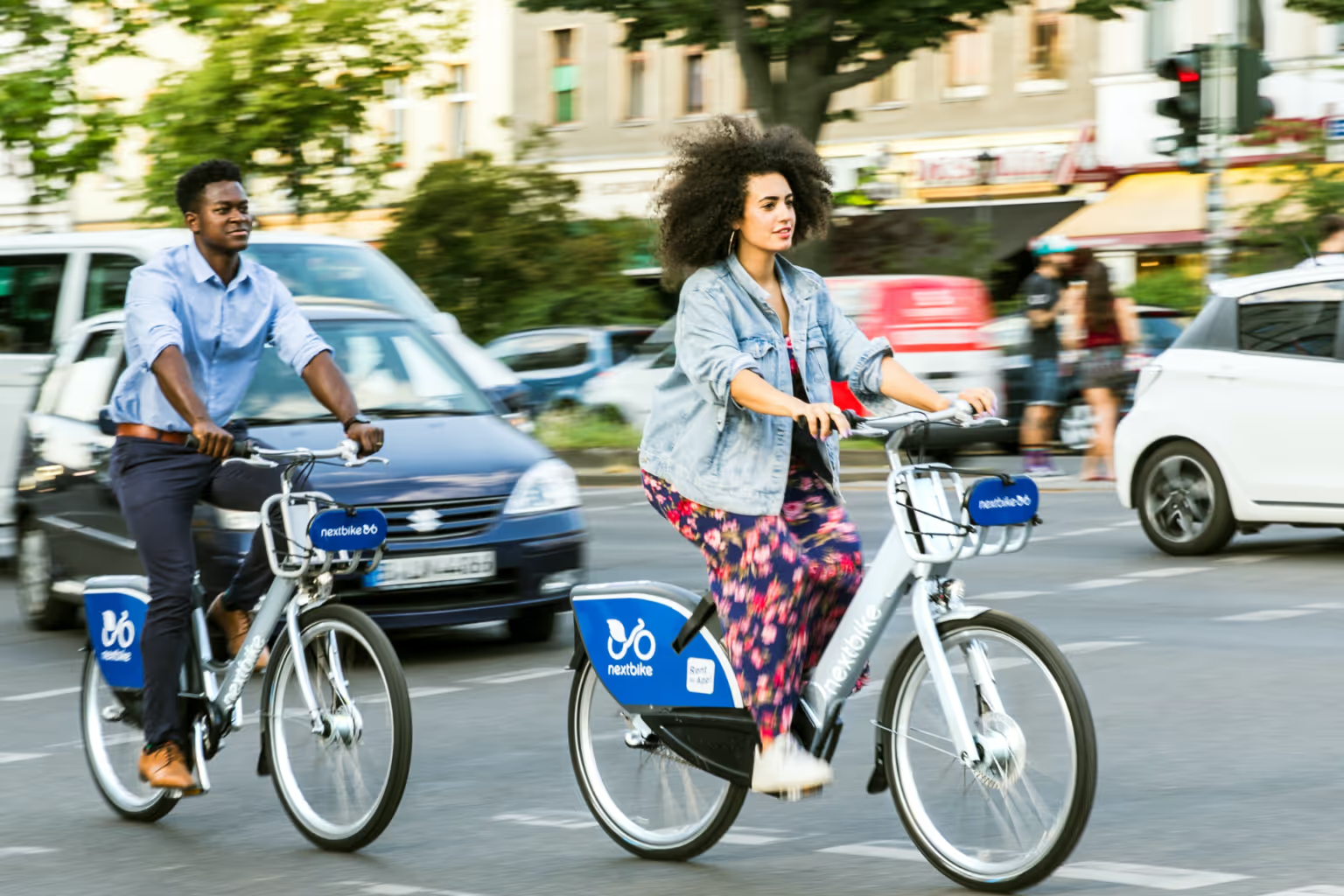Since its launch, the scheme, which encourages the use of soft mobility for home-to-work journeys, is beginning to make inroads into corporate strategies. A survey conducted by ViaID and ekodev in 2022 reveals key figures on the implementation of the sustainable mobility package in the private sector. Let's take a look at the progress and challenges of this initiative.
Sustainable mobility package: a few reminders
The sustainable mobility package, also known by the acronym FMD, is a scheme introduced by the Government in 2020 as part of the LOM law, which involves encouraging the use of sustainable mobility when commuting.
Originally, the FMD was scheduled to come into effect in July 2020. The main purpose of the scheme was to encourage soft and sustainable mobility for French commuters. However, the circumstances of the health crisis accelerated its deployment and the project was adopted in May 2020, during the first deconfinement.
In practical terms, the FMD represents an optional contribution by the employer towards the cost of employees' home-to-work transport by "soft mobility" (or active modes: cycling, etc.) or "alternative" modes (car-pooling, etc.). The amount varies from sector to sector.
Sustainable mobility package: what means of transport are eligible?
The employer may pay for all or part of the costs incurred for employees' home-to-work trips using sustainable modes of transportation. The following modes of transportation are considered sustainable
- Personal bike (electric or not) : purchase, repair...
- Carpooling (driver or passenger)
- Shared mobility services: rental or self-service provision of bicycles, scooters, scooters, gyropods
- Low-emission car-sharing services (electric, plug-in hybrid or hydrogen vehicles)
- Public transport (bus, metro, RER, tramway) excluding subscription
- Purchase of a scooter
Sustainable mobility package: who can benefit?
All categories of private-sector employees
Employees on permanent or fixed-term contracts, temporary employees, apprentices, trainees, part-time employees.
The maximum amount is €900 per year per employee.
Public sector companies
The judiciary, ministries and prefectures, town halls, departments and regions, public establishments, independent public authorities, public interest groups, public hospitals and public retirement homes. The rules for setting up the scheme differ from those in the private sector, with the following ceilings:
- 100 for employees who travel between 30 and 59 days a year
- 200 € from 60 to 99 days per year
- 300 € if more than 100 days per year
Sustainable mobility package and public transport passes: can social benefits be combined?
The sustainable mobility package can be combined with the 50% reimbursement of public transport passes or the reimbursement of fuel costs.
However, there are limits to the exemption:
- 600 per year per employee, including a maximum fuel allowance of €300
- A total of €900 per year per employee, for employees who also benefit from a public transport pass or bicycle hire scheme.
Sustainable mobility package: what are the obstacles to its implementation?
Although the sustainable mobility package (FMD) offers undeniable advantages, some companies are still reluctant to deploy it. The main obstacle is often the budget to be allocated, as indicated by 40% of employers surveyed, while 30% cite a lack of understanding and information on the subject. In addition, 23% of respondents prioritize other solutions such as a fleet of electric bikes or bike loans.
On the contrary, deployment of the FMD can generate savings, notably by reducing unused public transport season tickets. For example, employees can opt for a transport ticket only when going to the office, and vary their means of transport. This is an advantageous solution for the company as soon as a telecommuting day is introduced each week.
In addition to budgetary concerns, there are practical issues such as selecting "green" modes of transport and tracking expenditure. Manual management of receipts and certificates complicates implementation and is perceived as time-consuming. However, in a context where corporate social responsibility (CSR) and the organization of teleworking have become central, the FMD represents an opportunity not to be overlooked. Not only does it meet employees' expectations, but it also strengthens brand image and attracts new talent thanks to a strong commitment to CSR.
In short, although the FMD was designed to benefit employees and companies alike, it remains under-utilized. Lack of information, perceived costs and complexity of management are holding back its adoption, but solutions exist to simplify its deployment and enable companies to commit to more sustainable mobility.
Sustainable mobility package: how to overcome the obstacles?
Worklife offers an ideal solution to help companies implement the sustainable mobility package (FMD). Thanks to its payment card, which can be used with all sustainable mobility players, manual management of receipts becomes obsolete. This card not only enables the FMD to be combined with reimbursements for public transport season tickets, but also to finance the various means of sustainable mobility mentioned above. It also offers the possibility of paying for transport tickets individually, thus meeting employees' need for flexibility.
Since its launch, the sustainable mobility package has been gradually gaining ground in the mobility policies of French employers. Although not yet widely adopted, more and more companies are recognizing its benefits and integrating it as a response to social and environmental challenges.







